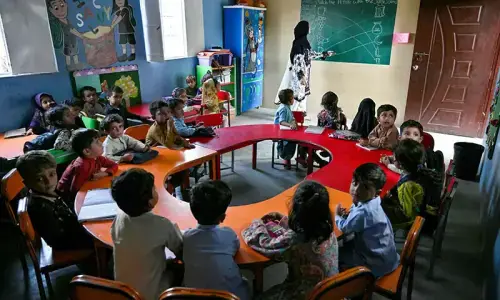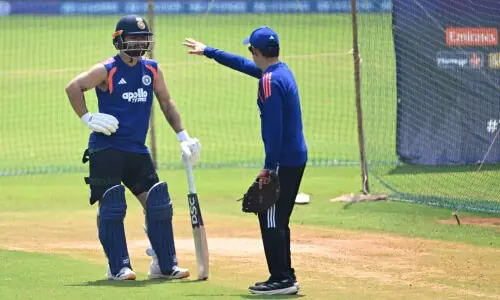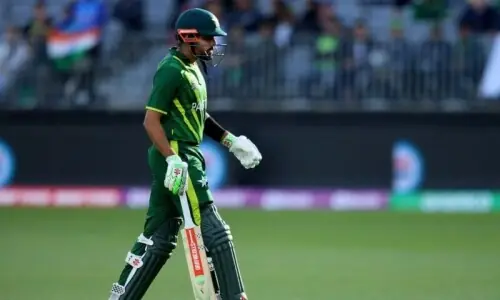ISLAMABAD: Civil rights activists have criticised the delay in the formulation of Hindu marriage laws, saying that a large segment of the population is being deprived of the benefits provided to Pakistani citizens.
“The system is excluding Hindus and other non-Muslims from playing a role for the state,” eminent human rights activist I.A. Rehman said.
Mr Rehman was addressing the closing ceremony of a two-day national conference on the Hindu Marriage Bill on Thursday. The conference was organised by the National Lobbying Delegation (NLD) for Minority Rights, and the Community World Service Asia.
He criticised the decades-long delay in the formulation of Hindu personal family laws, and said such delays were also detrimental to Muslim family laws.
“The best example [is] of marriage of underage girls – now we are having problems setting the minimum age of 18 years for girls to get married, and this is because of that body called the Council of Islamic Ideology, who has their own version that girls as young as five or six years can get married,” he said.
The conference was also addressed by Senator Saeed Ghani and Qamar Zaman Kaira, the PPP information secretary, who lamented rising extremist attitudes in the country and said the delay in the formulation of Hindu marriage laws was like denying citizens basic rights.
Speaking to the press, activists from the Hindu community said the matter has been pending since 1976 and various governments have delayed it on various pretexts.
“Now some people are saying the Hindu community is divided over it but this isn’t correct,” M Prakash, a lawyer from Sindh, said. “We are the stakeholders, the respected members of the Hindu community and proud Pakistanis.” He said there was no reason for the delay in the bill’s approval other than the political tussle between PML-N and PPP.
Speakers said that the federal minister for information and broadcasting, with the portfolio of the minister of law, justice and human rights, tabled the Hindu Marriage Bill 2015 in parliament. They said the bill was deferred for a month in July last year, and there has been no development on the issue since.
Since issues related to minorities and family matters have been devolved to the provinces, the federal government is seeking resolutions from provinces so a national law may be formulated.
The Balochistan and Khyber Pakhtunkhwa assemblies have already passed resolutions accepting the federal law in their provinces, but the Punjab and Sindh assemblies have yet to do the same.
Rights of Expression, Assembly, Association and Thought (REAT) Network chairperson Krishan Sharma said: “The Hindu community has suffered because of the absence of personal laws in several ways, and women are the worst affected by the situation.” He gave the example that if a married Hindu woman is abducted and forcibly married, her family does not have the means to prove her prior marriage.
Published in Dawn, January 29th, 2016





























